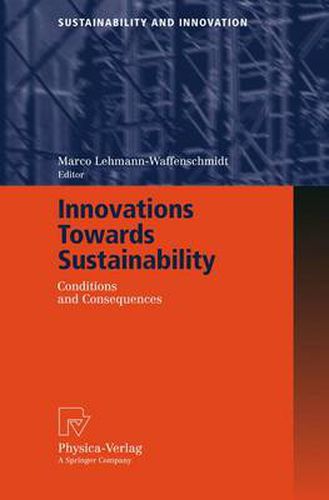Readings Newsletter
Become a Readings Member to make your shopping experience even easier.
Sign in or sign up for free!
You’re not far away from qualifying for FREE standard shipping within Australia
You’ve qualified for FREE standard shipping within Australia
The cart is loading…






This title is printed to order. This book may have been self-published. If so, we cannot guarantee the quality of the content. In the main most books will have gone through the editing process however some may not. We therefore suggest that you be aware of this before ordering this book. If in doubt check either the author or publisher’s details as we are unable to accept any returns unless they are faulty. Please contact us if you have any questions.
In 1999, the German federal ministry of education and research (BMBF) decided to include two new priorities in its environmental research policy portfolio. One was concerning socio-ecological research aiming at a better understandingofthe socialdimensionofthe sustainabilitytriadandthe other onewasoninnovationorientedresearchaiming atabetter understandinghow companies and public authorities can in?uence innovation activities towards the sustainability objectives. The latter priority led to two new programme lines, one targeting at the company level and the other one targeting at the publicpolicylevelundertheheadlineof frameworkconditionsforinnovations towards sustainable development (RIW). The projects funded under the RIW programme were analysing the - tential innovation impact of environmental policy measures on the one hand and the sustainability impact of other policies, such as innovation policy, on the other hand. The design of the RIW programme included in addition an international outreach dimension with the organisation of international c- ferences as well as the establishment of collaboration platforms among the funded projects in order to allow for more general conclusions. The RIW programme followed the BMBF tradition to foster multi- or interdisciplinary cooperation,notablyinvolvingacademicsfromeconomics,policysciences,and law.
$9.00 standard shipping within Australia
FREE standard shipping within Australia for orders over $100.00
Express & International shipping calculated at checkout
This title is printed to order. This book may have been self-published. If so, we cannot guarantee the quality of the content. In the main most books will have gone through the editing process however some may not. We therefore suggest that you be aware of this before ordering this book. If in doubt check either the author or publisher’s details as we are unable to accept any returns unless they are faulty. Please contact us if you have any questions.
In 1999, the German federal ministry of education and research (BMBF) decided to include two new priorities in its environmental research policy portfolio. One was concerning socio-ecological research aiming at a better understandingofthe socialdimensionofthe sustainabilitytriadandthe other onewasoninnovationorientedresearchaiming atabetter understandinghow companies and public authorities can in?uence innovation activities towards the sustainability objectives. The latter priority led to two new programme lines, one targeting at the company level and the other one targeting at the publicpolicylevelundertheheadlineof frameworkconditionsforinnovations towards sustainable development (RIW). The projects funded under the RIW programme were analysing the - tential innovation impact of environmental policy measures on the one hand and the sustainability impact of other policies, such as innovation policy, on the other hand. The design of the RIW programme included in addition an international outreach dimension with the organisation of international c- ferences as well as the establishment of collaboration platforms among the funded projects in order to allow for more general conclusions. The RIW programme followed the BMBF tradition to foster multi- or interdisciplinary cooperation,notablyinvolvingacademicsfromeconomics,policysciences,and law.